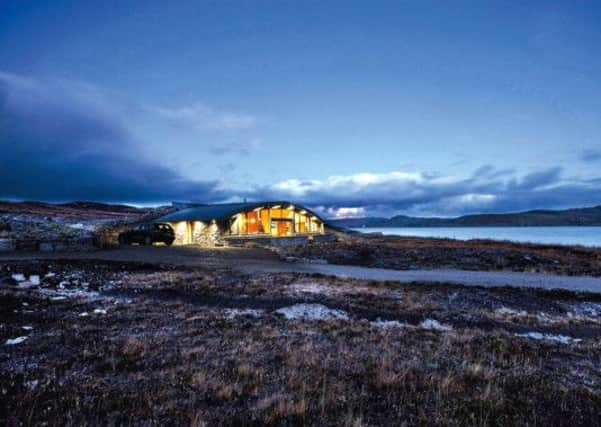‘Digital detox’ Scots tourism plan criticised


But now the tourism industry wants to turn a disadvantage into a selling point by promoting Scotland’s remote reaches as the perfect place for a “digital detox”.
A new report has identified a potential growth market in people looking to ditch their smartphones and tablets during their breaks, including stressed-out workers and holidaymakers seeking “meaningful and emotional experiences”.
Advertisement
Hide AdIndustry leaders say around a quarter of Scotland is still without proper access, with the West Highlands, Sutherland and Outer Hebrides among the areas worst affected.
But not everyone is enamoured of the idea of celebrating something Scotland lacks.
The Scottish Tourism Alliance, the leading industry body, casts doubt on the wisdom of promoting the “novelty of Luddism” – as VisitScotland describes it – at a time when digital access is considered vital by many visitors.
Chief executive Marc Crothall said: “For 25 per cent of the country not to have proper mobile phone access is just not good enough for the modern day. We need to have full coverage across the whole country as soon as possible.”
Stephen Leckie, chief executive of Crieff Hydro and one of the leading campaigners for digital improvements to boost tourism, warned that highlighting a lack of connectivity risks discouraging visitors.
He said large swathes of the Highlands were being treated like digital “backwaters”, adding: “Anyone who thinks customers are going to come to Scotland and love the fact they can’t get proper mobile phone access is just living in yesteryear. They just don’t get it.
Advertisement
Hide Ad“Technology and connectivity is the way forward for tourism. You want to have the choice yourself rather than have someone else make the choice for you.”
Tourism businesses in some parts say they are already seeing an increase in people looking to escape from technology and ensure they are not interrupted during their stay by having to answer e-mails or take a work call.
Advertisement
Hide AdAccording to one guesthouse owner, the fact that visitors cannot be contacted because there is no signal allows them to relax more fully than if they just switched off the device.
However, VisitScotland’s most recent survey of more than 3,000 visitors showed that just 66 per cent (about 2,000 people) were happy with mobile phone access during their trip.
The availability of wi-fi and broadband scored even lower, with only 54 per cent of visitors expressing satisfaction with the level of access.
Just 19 per cent were able to upload photos onto social media sites, although some 47 per cent admitted they went online to share their experiences when they got home.
A separate VisitScotland report, Trends For 2014, based on evidence gathered from around the world, said there is a chance to reposition parts of Scotland as places to embrace the concept of “jomo” – the joy of missing out.
The report states: “Stress is a continuing byproduct of the global economic woes we experienced in the recent past.
Advertisement
Hide Ad“Multitasking has become ingrained in our psyche. Although technology is and will be a driving force for many years to come with tourism, some providers have identified a niche market for those who want to escape digital life, albeit temporarily.
“Health and wellbeing tourism has excelled in recent years.
Advertisement
Hide Ad“Psychological health is also identified as an area for growth, with many providers offering packages such as tai chi breaks as a means of escape from everyday digital life, providing an opportunity for consumers to detach from life, and regenerate.”
Chris Greenwood, senior tourism insight manager at VisitScotland, said: “There seems to be more and more pressure on some people to be able to answer an e-mail or take a work call when away on holiday.
“Some people are looking to lift that stress and really get away from everything. There are several parts of Scotland, particularly in the north-west, that offer the chance to have real digital isolation.
“People can make a virtue of the fact there is no phone signal or internet access and use it in the way they promote the fact they are in a really natural environment where you can get away from it all, where you might have to live with a peat fire or a gas lamp for a week.”
Fiona Mackay, owner of Croft 103, two self-catering cottages at Loch Eriboll in north-west Sutherland, said: “The fact there isn’t a mobile phone signal is a big selling point for us.
“We have seen a lot of people coming up from London since we opened three years ago, and we market the cottages as ideal for couples who want to be in their own world.
Advertisement
Hide Ad“After a week here without any technology we get people telling us they never want to leave.”
Mick Stott, owner of Badrallach croft, on the banks of Little Loch Broom in Wester Ross, has a B&B in an Airstream touring trailer, as well as a cottage, bothy and caravan – all without access to the internet or a mobile signal.
Advertisement
Hide AdHe said: “We have satellite wi-fi access to help us run the business, but we only really allow people to use it to print off the weather forecast. People don’t come on holiday here to answer e-mails.”
Jackie Robertson, former owner of Britain’s most remote pub, the Old Forge, at Inverie on the Knoydart peninsula, now runs two self-catering businesses in the village.
“There’s no mobile phone access at all in Inverie and I’d say it’s one of its biggest selling points.
“It makes such a difference in the pub not to have everyone sitting with their gadgets. This is a place where people get together and talk to each other.
“And you can still have an argument about something without someone looking up the answer on their phone.”